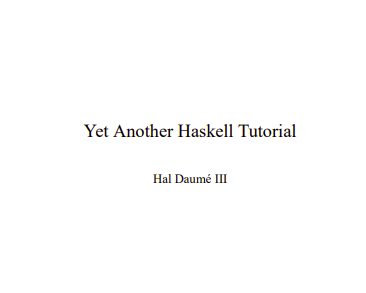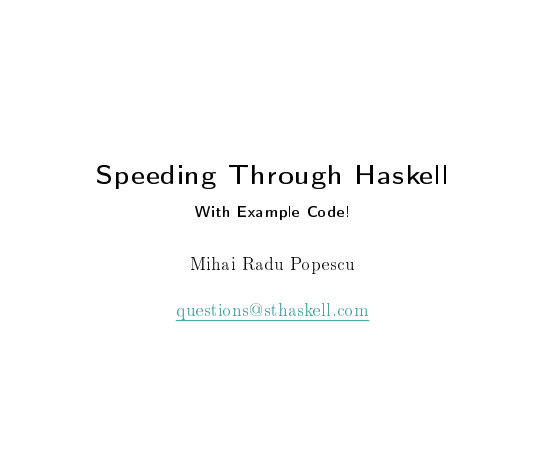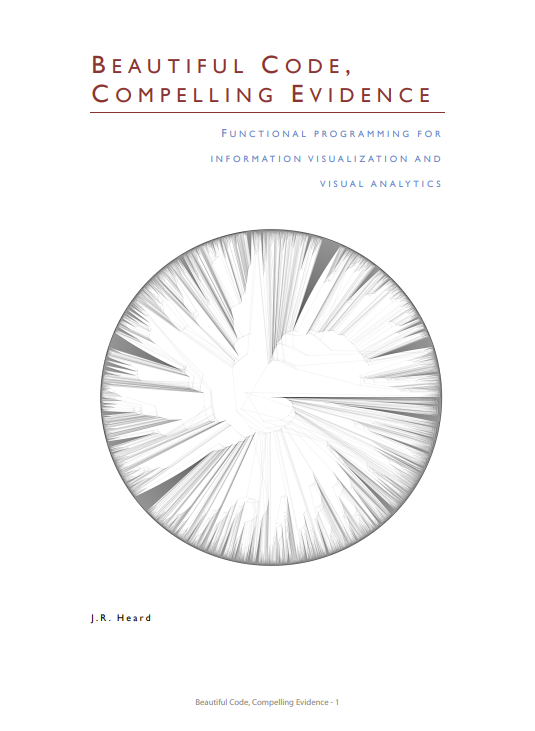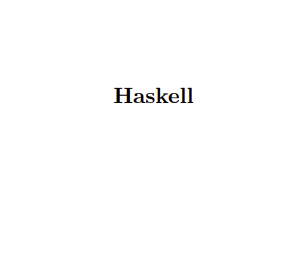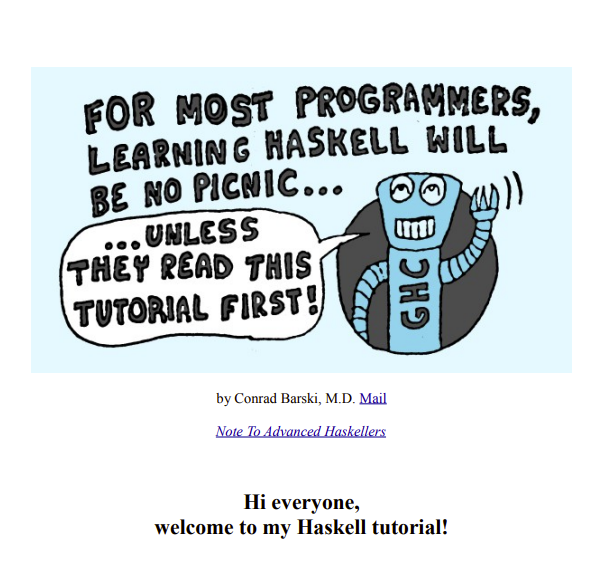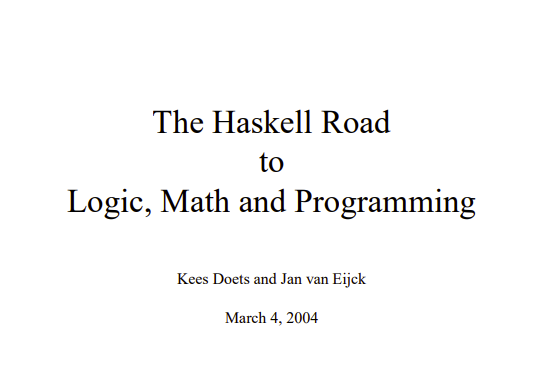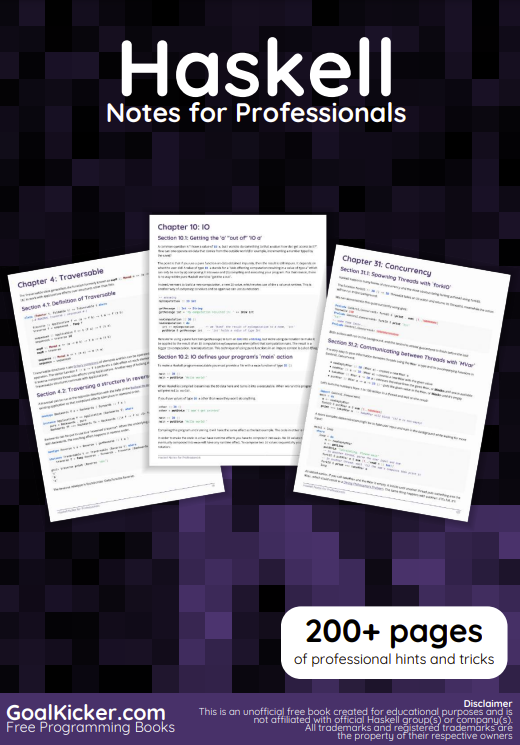The goal of the Yet Another Haskell Tutorial is to provide a complete intoduction to the Haskell programming language. It assumes no knowledge of the Haskell language or familiarity with functional programming in general. However, general familiarity with programming concepts (such as algorithms) will be helpful. This is not intended to be an introduction to programming in general; rather, to programming in Haskell. Sufficient familiarity with your operating system and a text editor is also necessary (this report only discusses installation on configuration on Windows and *Nix system; other operating systems may be supported – consult the documentation of your chosen compiler for more information on installing on other platforms).
What is Haskell?
Haskell is called a lazy, pure functional programming language. It is called lazy because expressions which are not needed to determine the answer to a problem are not evaluated. The opposize of lazy is strict, which is the evaluation strategry of most common programming languages (C, C++, Java, even ML). A strict language is one in which every expression is evaluated, whether the result of its computation is important or not. (This is probably not entirely true as optimizing compilers for strict languages often do what’s called “dead code elmination” – this removes unused expressions from the program.) It is called pure because it does not allow side effects (A side effect is something that affects the “state” of the world. For instance, a function that prints something to the screen is said to be side-effecting, as is a function which affects the value of a global variable.) – of course, a programming language without side effects would be horribly useless; Haskell uses a system of monads to isolate all impure computations from the rest of the program and perform them in the safe way (see Chapter 9 for a discussion of monads proper or Chapter 5 for how to do input/output in a pure language).
Haskell is called a functional language because the evaluation of a program is equivalent to evaluating a function in the pure mathematical sense. This also differs from standard languages (like C and Java) which evaluate a sequence of statements, one after the other (this is termed an imperative langauge).
